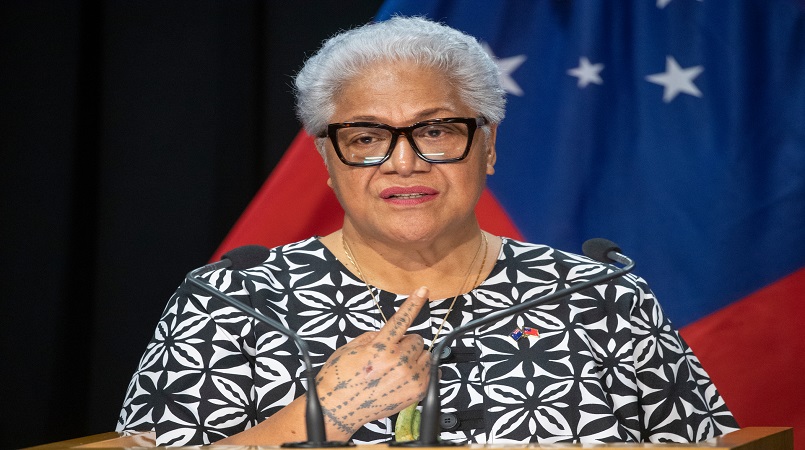
Samoa's Prime Minister Fiame Naomi Mata'afa has again raised deep concerns about the exodus of Pacific workers to Australia and New Zealand, arguing that countries like hers should not been seen merely as "outposts" which "grow" labourers for developed na
The number of Pacific Island nationals heading to Australia under the Pacific Australia Labour Mobility (PALM) scheme has grown rapidly since COVID travel restrictions were eased, with the program now drawing in more than 35,000 workers on both short and longer term contracts.
The federal government has hailed the scheme as a major success, saying it has helped to fill workforce shortages in Australia while allowing Pacific Islanders to develop their skills and send valuable remittances back home.
But some Pacific nations — including Vanuatu, Tonga and Samoa – have become increasingly anxious that their own workforces are being depleted by the program, and are reviewing their rules allowing workers to travel to Australia.
Ms Fiame acknowledged labour schemes had been an invaluable source of income for Samoa during the pandemic, but said more problems had cropped up as they "broadened" beyond unskilled farm work to take in professions like aged care and hospitality.
"When we're feeling the impact of losing our human resources through these various labour schemes, we really do have to look at how we respond," she told the ABC's The Pacific program.
The prime minister also said she worried about the program's underlying dynamics, arguing that Pacific nations risked being seen as "just these outposts where we grow people".
"You know, either to send them off as sportspeople, or to send them off as labour mobility teams and so forth, as though that's our lot in life," she said.
"I really don't like that."
Earlier this year Ms Fiame floated the idea of creating a European Union-style common market in the region, allowing the free movement of goods and people across Australia, New Zealand and Pacific Island nations.
She told the ABC that Pacific leaders needed to "sit down" with Australian and New Zealand officials to discuss labour shortages, and that both Canberra and Wellington should consider more "flexible and mobile" arrangements with Pacific neighbours to help relieve the pressure.
"I think the pressure for people to migrate, is because it's so hard to … just to go visit. A lot of Pacific Islanders think that [the] only way they can get access, in any significant way, to New Zealand and Australia, is through permanent migration," she said.
"But I think if we had more open access, and travel, there wouldn't be that pressure."
Australia has shown little appetite for that proposal so far, but the Department of Foreign Affairs and Trade told the ABC it would "continue to listen and respond to Pacific island priorities, including on labour mobility".
"The Australian Government is working closely with participating countries and stakeholders in the Pacific Australia Labour Mobility (PALM) scheme to ensure the scheme delivers a genuine skills dividend for our region and meets the wishes of each country," it said in a statement.
"Participating countries decide how many and which types of workers from their country take part in PALM, including who can register in work-ready pools, so they can retain the skills they need in their domestic workforce."
